Antibody Drug Conjugate Research Solutions
Antibody-Drug Conjugates (ADCs) couple the precise targeting ability of monoclonal antibodies and the powerful effects of small-molecule cytotoxic drugs. This strategy enhances the precision of cancer treatments while reducing the unwanted side effects commonly seen with traditional therapies. Using high-quality Antibodies and reagents, enhances the outcome of your research immensely.
OriGene's Solution for ADC Development Research
Discover reagent solutions designed to provide comprehensive support throughout the entire ADC development lifecycle, from initial antibody selection through process development and into pre-clinical studies.
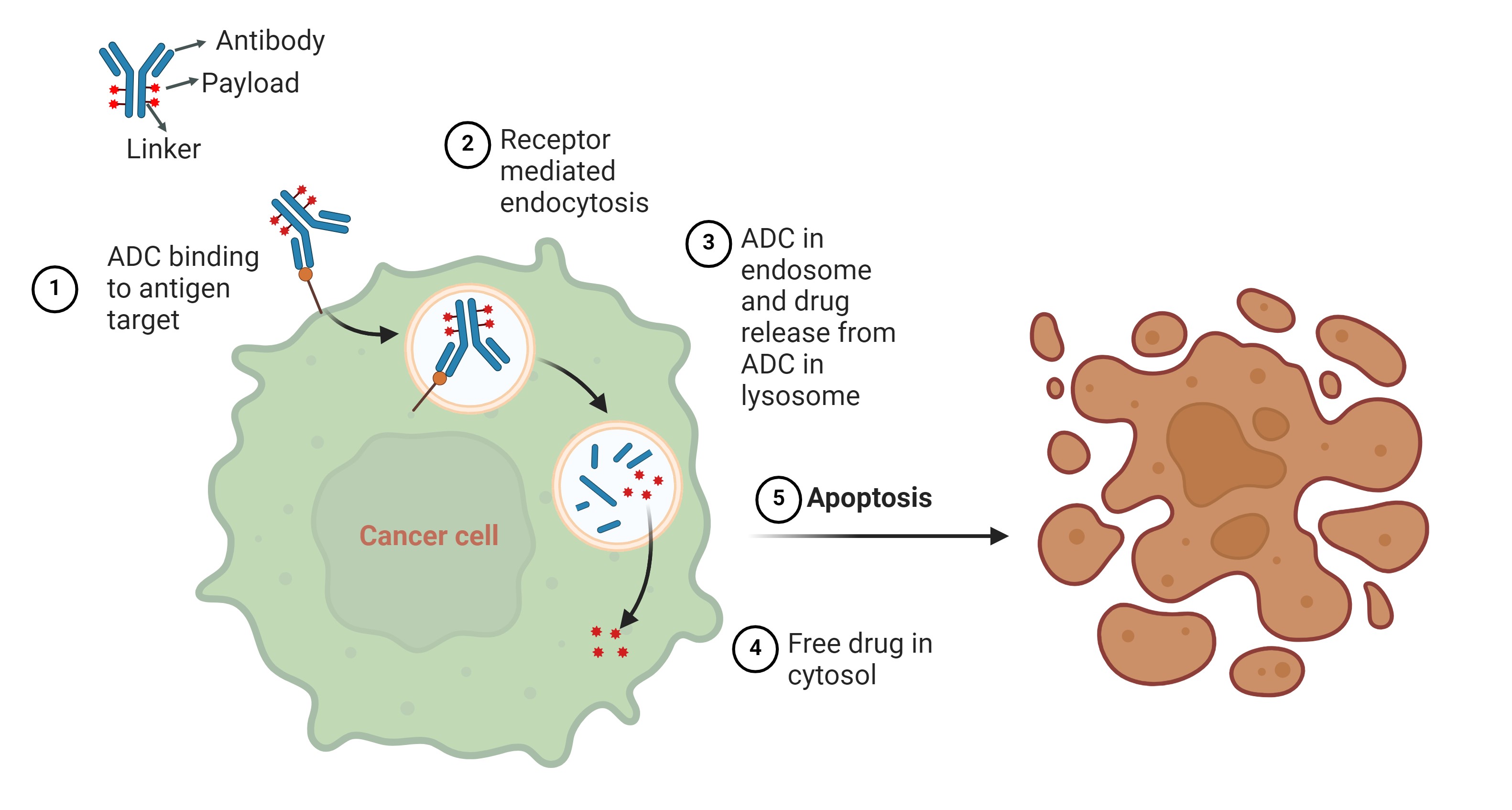

Anti-Payloads and Linker Antibodies
Assessing the pharmacokinetics (PK) of ADCs in preclinical and clinical studies is crucial for their development. Biotransformation can impact the drug-to-antibody ratio (DAR) or modify the payload/linker, leading to different in vivo forms. PK assays typically measure conjugated antibodies, total antibodies, and released payload.
OriGene offers high-purity, high-affinity anti-payload and anti-linker antibodies for analyzing ADC plasma/serum PK profiles, DAR values, and drug load distribution. These antibodies help evaluate ADC safety and efficacy, supporting faster drug development.
Applications:
- ADC PK analysis
- DAR Value Detection
Features:
- High-affinity rabbit mAb
- Unconjugated and Biotin-conjugated
- Validated using ELISA
- Available in 10 ug and 100 ug sizes
- Multiple clones
ELISA Application Reference Data
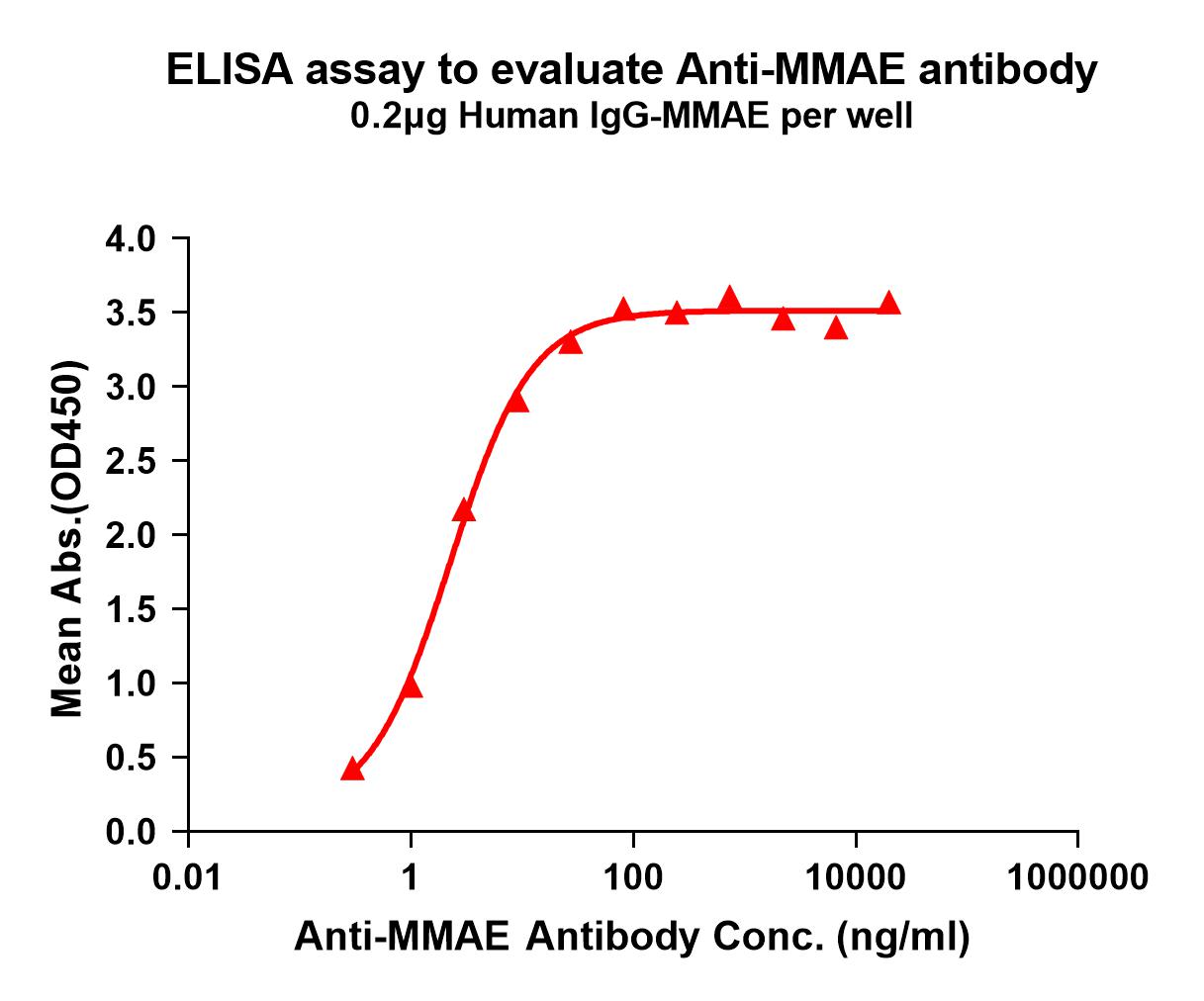
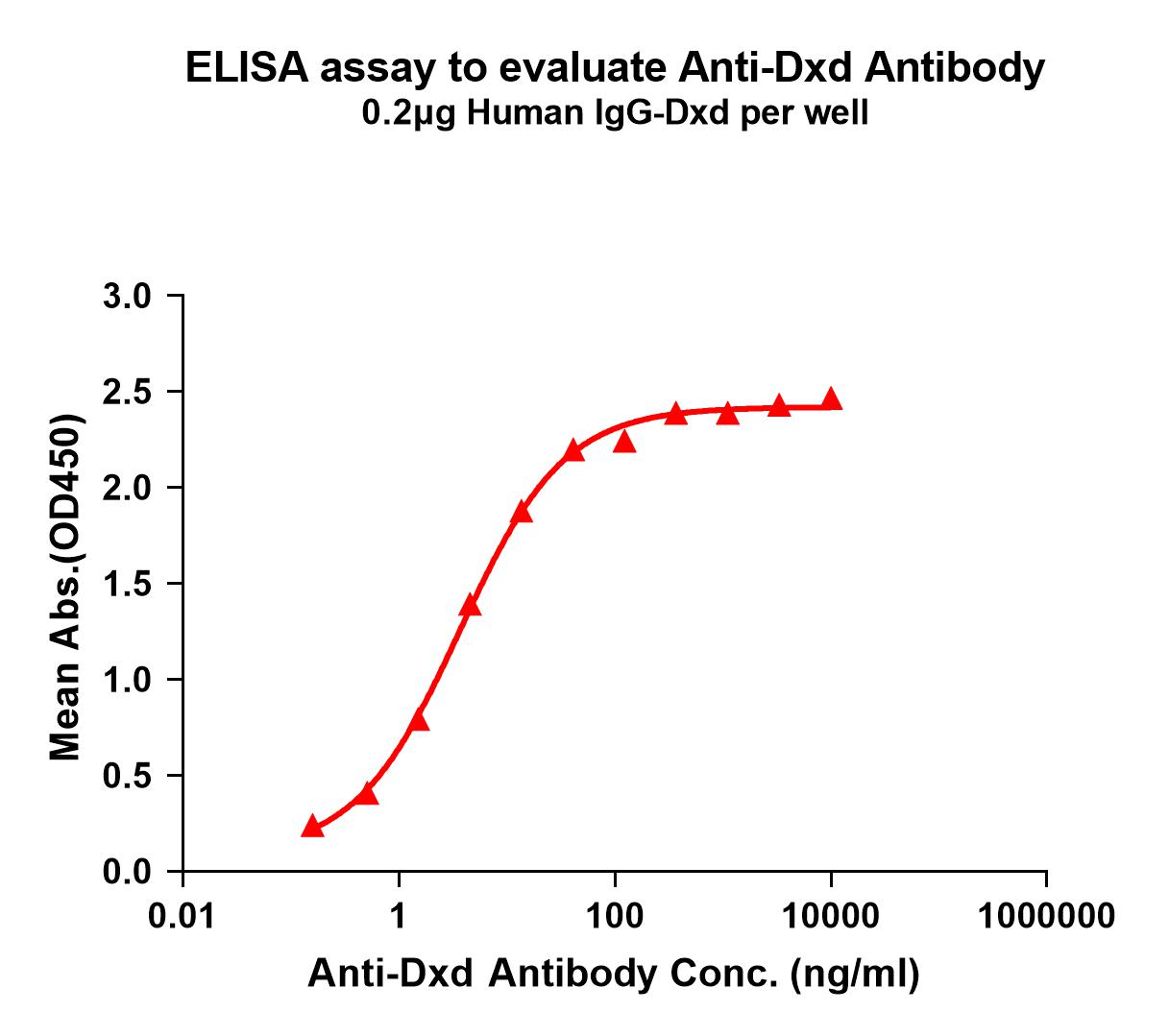
ELISA analysis using anti-MMAE antibody and IgG-MMAE molecule. The EC50 is 1.356 ng/ml.
ELISA plates were pre-coated with IgG-Dxd (0.2μg/per well). Serial diluted anti-Dxd monoclonal antibody () solutions were added, washed, and incubated with secondary antibody before ELISA reading. From above data, the EC50 for anti-Dxd monoclonal antibody binding with IgG-Dxd is 3.690ng/ml
Antibodies Against Linker
ELISA Application Reference Data
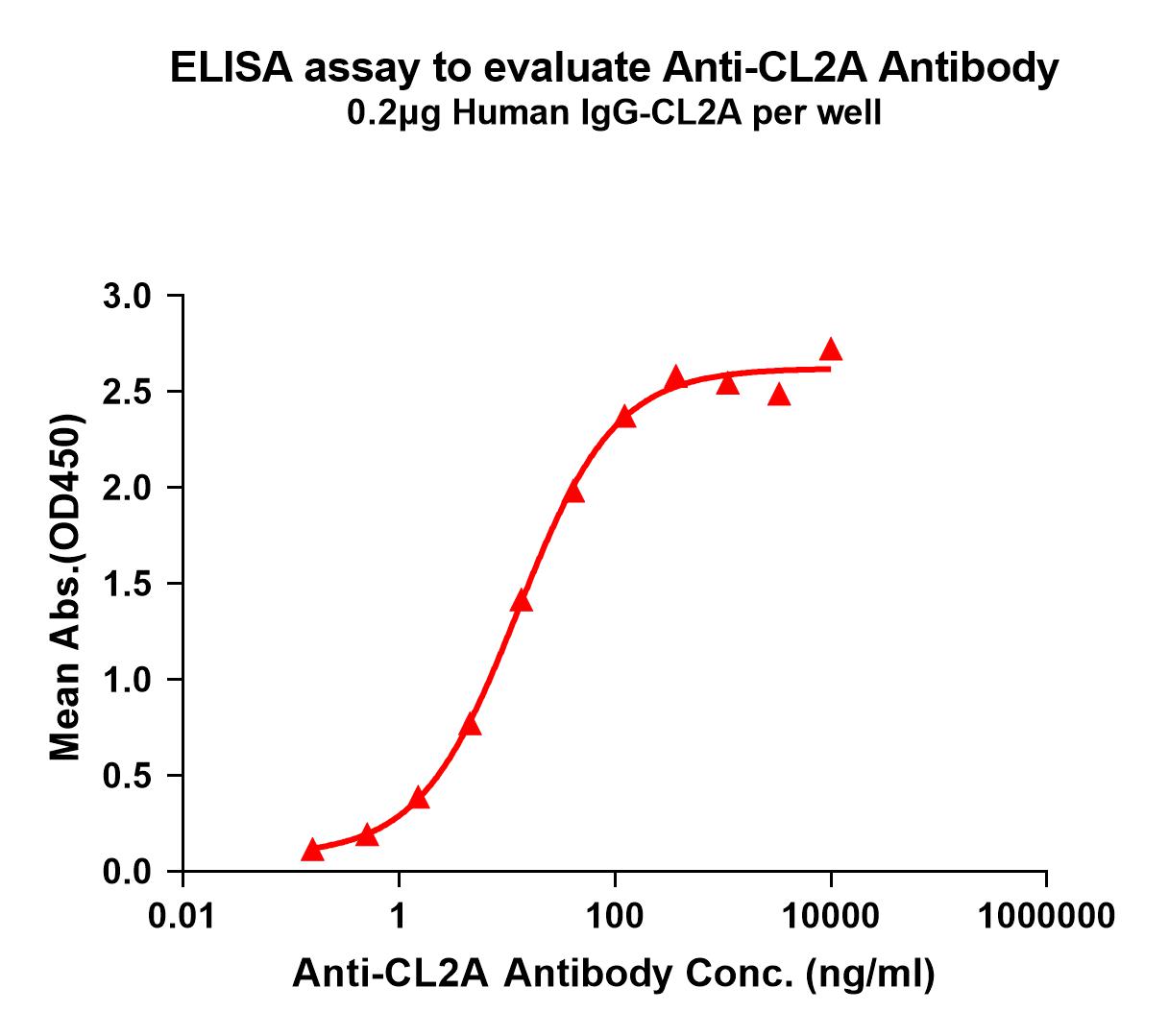
ELISA plates were pre-coated with IgG-CL2A (0.2μg/per well). Serial diluted anti-CL2A monoclonal antibody () solutions were added, washed, and incubated with secondary antibody before ELISA reading. From above data, the EC50 for anti-CL2A monoclonal antibody binding with IgG-CL2A is 12.57ng/ml.
pH-sensitive ADC Internalization Labeling Reagent
Antibody internalization is crucial for evaluating ADC bioactivity, both in early discovery and preclinical studies.
OriGene offers a pH-sensitive dye for internalization studies. This dye remains non-fluorescent at neutral pH but fluoresces in acidic environments, enabling real-time tracking of internalization. By conjugating the dye to target compounds, researchers can easily monitor uptake using flow cytometry or fluorescence microscopy.
Applications:
- In vitro internalization assay detection using flow cytometry or fluorescence microscopy
Features:
- Higher sensitivity than other solutions
- Broad spectrum of binding to IgG subtypes
- Human: IgG1, IgG2, IgG3, IgG4
- Mouse: IgG1, IgG2a, IgG2b, IgG3
- Rabbit: IgG
- Use less reagent
- Simplified protocol
- Cost-effective pH-sensitive fluorescence IgG labeling reagent available
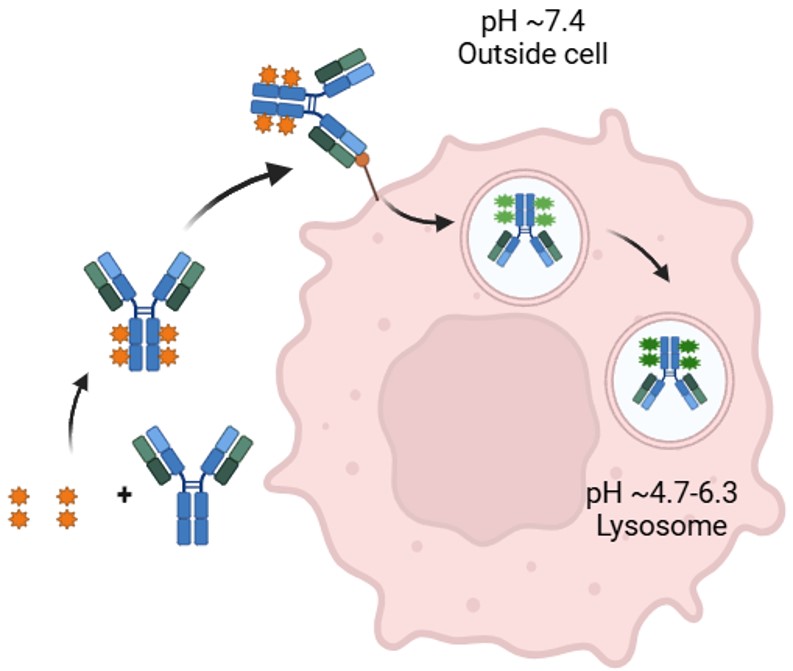
Internalization Data and Comparison with Competitor Reagent

Specific Internalization of GPRC5D ADC BMK- Conjugate in GPRC5D-Positive Cells (K562-GPRC5D Stable Expression Cell Line, Right), with No Detection in K562 Cells Lacking GPRC5D Overexpression (Left).
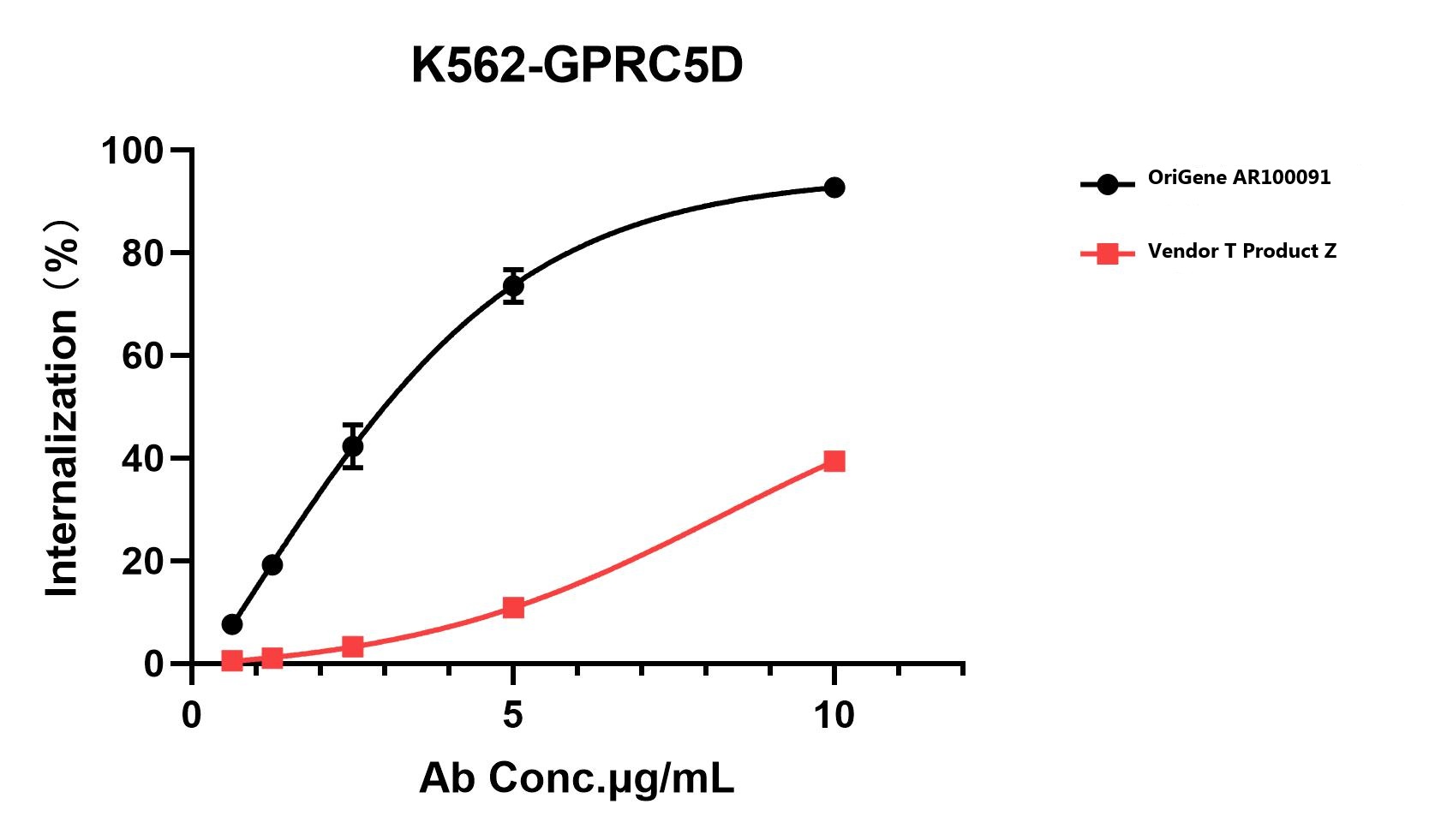
Comparison of internalization efficiency between and a vendor T Z reagent on GPRC5D-positive cells (K562-GPRC5D stable expression cell line). requires less reagent and shorter incubation time while demonstrating higher sensitivity.
Try the ADC internalization pH-sensitive IgG labeling reagent sample for free
Biosimilar Antibodies in ADC Research
Biosimilar antibodies are revolutionizing the field of Antibody-Drug Conjugate (ADC) research, providing a cost-effective and highly reliable alternative to innovator biologics. These biosimilars deliver comparable efficacy, safety, and quality to reference monoclonal antibodies, making them an invaluable resource for researchers aiming to develop next-generation ADC therapeutics. With their affordability and consistent performance, biosimilar antibodies are driving innovation in ADC development, accelerating drug discovery, and enhancing accessibility for pharaceutical research teams.
Why Choose Biosimilar Antibodies for ADC Research?
- Cost-Effective Solutions
- Consistent and Reliable Performance
- Accelerated Research Timelines
Selection of OriGene’s Biosimilars:
- Atezolizumab
- Gemtuzumab Ozogamicin
- Praluzatamab
- Magrolimab
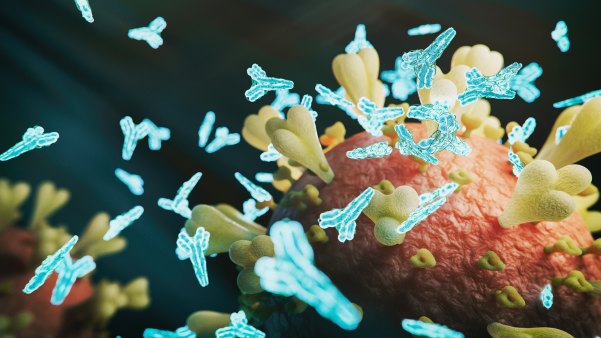
Explore of our biosimilars by visiting https://www.origene.com/research-areas/biosimilars
